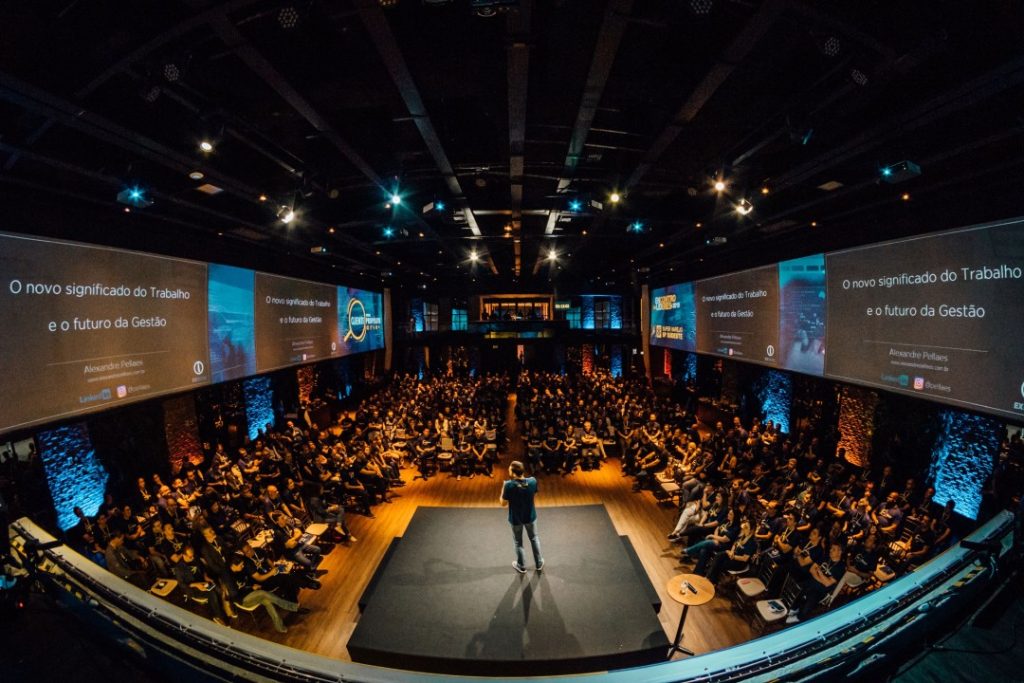
1. Virtual & Hybrid Event Trends
Continued Popularity of Virtual Events: The popularity of virtual events, which surged during the pandemic, shows no signs of waning. Initially born out of necessity due to lockdowns and social distancing, virtual events have proven their lasting value. They offer a range of benefits that continue to attract organizers and attendees alike. One of the primary advantages is cost efficiency; virtual formats significantly reduce expenses related to venues, travel, and accommodations, making events more accessible to a broader audience. Additionally, the flexibility in scheduling afforded by online platforms allows organizers to plan events without the constraints of physical venue availability. Enhanced data collection capabilities further bolster the appeal, as digital platforms provide valuable insights into attendee engagement and preferences.
2. Sustainability in Event Planning
Growing Importance of Environmental Responsibility: In 2024, the growing importance of environmental responsibility is significantly shaping event planning trends. A societal shift towards eco-consciousness has led both organizers and attendees to prioritize sustainability, making it a fundamental aspect of event strategy. As awareness of climate change and environmental issues continues to rise, the demand for eco-friendly practices is influencing how events are conceived and executed. This cultural change pushes the industry to adopt more responsible approaches that reflect a commitment to protecting the planet.
Key Sustainability Practices: Event organizers are implementing various key sustainability practices to minimize their environmental impact. One notable practice is digital ticketing, which eliminates the need for traditional paper tickets, thus significantly reducing paper waste and associated costs. This shift not only supports environmental goals but also simplifies the registration process for attendees. Another essential practice is the selection of sustainable venues. Choosing facilities that utilize renewable energy sources and offer eco-friendly systems is becoming increasingly common. Many venues are committing to zero-waste policies, which further reduces the carbon footprint of events. By prioritizing such venues, organizers can significantly contribute to the overall sustainability of their events.
Long-term Impact: Sustainability is now seen as a core principle in event planning strategies. As the industry evolves, incorporating eco-friendly practices is no longer optional; it has become a fundamental expectation from stakeholders. This long-term impact signifies a transformation in how events are planned, emphasizing environmental stewardship at every stage. By embedding sustainability into their strategies, event organizers are not only meeting the demands of today’s eco-conscious society but are also paving the way for a more responsible and sustainable future in the event industry.
3. Personalized Experiences
Focus on Customer Experience: In 2024, the emphasis on customer experience has become paramount, with personalization emerging as a key driver for attendee engagement. Event organizers recognize that creating tailored experiences can significantly enhance satisfaction and foster lasting connections. By focusing on individual preferences and needs, organizers can ensure that every attendee feels valued and engaged throughout the event.
Leveraging Data Analytics: To achieve effective personalization, leveraging data analytics is essential. Organizers can collect and analyze vast amounts of data to gain insights into attendee behaviors, preferences, and interests. This information enables event planners to design experiences that resonate with participants on a personal level, from customized content to targeted networking opportunities. By utilizing data-driven strategies, organizers can create memorable experiences that cater specifically to their audience.
Innovative Tools for Personalization: Innovative tools are pivotal in delivering personalized experiences. RFID bracelets, for example, allow organizers to track attendee movements and interactions, providing real-time insights into preferences and engagement levels. This technology enables organizers to customize experiences dynamically, offering personalized recommendations based on individual behavior. Event apps, such as the Breezing.in app, further enhance personalization by providing attendees with features tailored to their interests. These apps can offer everything from personalized schedules to interactive maps, ensuring that attendees can navigate the event with ease and find experiences that align with their preferences.
Social Media Engagement: Social media engagement has become a crucial element in connecting with attendees before, during, and after events. By leveraging platforms like Instagram, TikTok, and Twitter, organizers can foster community interaction and gather real-time feedback. Monitoring engagement through these channels allows organizers to adapt and respond to attendee needs, creating a more connected and responsive event atmosphere.
Feedback Mechanisms: Utilizing feedback mechanisms is vital for continuous improvement in personalization efforts. Distributing surveys before, during, and after the event enables organizers to gather valuable insights about attendee experiences and preferences. This direct feedback serves as an invaluable resource for refining future events and ensuring that organizers consistently meet the evolving needs of their audience. By prioritizing feedback, event professionals can create increasingly tailored and engaging experiences that resonate with attendees.
4. Inclusivity & Accessibility
Commitment to Diverse Needs: In 2024, the commitment to inclusivity and accessibility is paramount in event planning. Organizers are increasingly focused on ensuring optimal experiences for all attendees, including individuals with disabilities. By prioritizing diverse needs, event professionals aim to create environments where everyone feels welcomed and valued, fostering a more enriching experience for all participants.
Accessibility Measures: Implementing effective accessibility measures is essential for creating inclusive events. This includes providing sign language interpreters to facilitate communication for attendees who are deaf or hard of hearing. Additionally, sensory-friendly spaces are being established to accommodate neurodiverse individuals, allowing them a safe and comfortable environment. Dietary accommodations are also crucial, ensuring that meals cater to various health or cultural needs, while wheelchair access remains a standard requirement to promote physical inclusivity.
Inclusivity in Virtual Events: Inclusivity extends beyond physical spaces to virtual events as well. Support for hard-of-hearing attendees is increasingly important, with features like closed captioning and AI translators being integrated into virtual platforms. These enhancements ensure that all attendees can participate fully, regardless of their physical location or abilities, making events accessible to a global audience.
Diverse Programming: Broadening content to appeal to a wider audience is a critical aspect of inclusivity. Event organizers are prioritizing diverse programming that incorporates multiple perspectives and voices. By showcasing a variety of speakers, topics, and formats, events can better resonate with all attendees, fostering a sense of belonging and community. This commitment to inclusivity not only enriches the event experience but also encourages a more engaged and connected audience.
5. Tech-driven experience
Utilize Interactive Platforms: Leverage platforms that facilitate real-time engagement. Incorporating live polling, Q&A sessions, and networking tools can enhance participation and foster a dynamic event atmosphere.
Focus on Personalization: Use data analytics to create tailored experiences that resonate with attendees. Personalized content and recommendations based on attendee behavior can significantly enhance engagement and satisfaction.
Streamline Registration and Check-In: Implement tech solutions for efficient check-in processes, such as mobile apps and QR codes. This reduces wait times and ensures a smooth entry experience, setting a positive tone for the event.
Enhance Networking Opportunities: Utilize technology to facilitate connections among attendees. Virtual meeting platforms and matchmaking tools can help participants network based on shared interests, leading to meaningful relationships.
Leverage Data Collection: Use technology to collect and analyze attendee data throughout the event. Insights from attendee engagement can inform future planning and help improve overall experiences.












